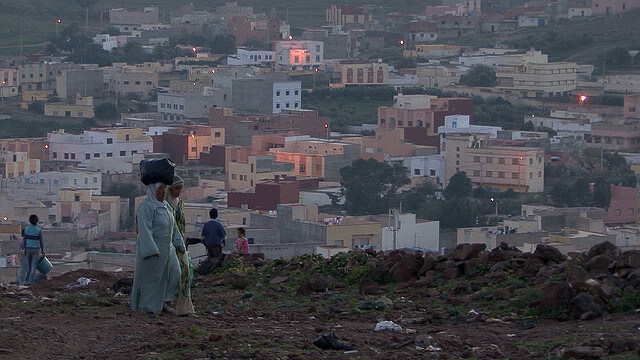The Spanish Partido Popular Party (PP) has announced a parliamentary initiative aiming to enable the expulsion of unaccompanied and separated children (UASCs) that arrive at the Spanish enclave of Melilla, by categorising them as “economic migrants”. Meanwhile, the Spanish Government is negotiating with Morocco regarding the repatriation of undocumented children.
When an unaccompanied child Farrives in Melilla, the administration of the enclave is responsible for their protection. UASCs cannot be expelled unless their relatives willingly accept them in their countries of origin. The change in the law proposed by Pablo Casado, President of PP last week seeks to categorise children as “economic migrants” above which “citizen security and border control” can be prioritised.
The Socialist Government began to negotiate the repatriation of Moroccan migrant children in October 2018. This could be done through the application of the Spain-Morocco bilateral agreement of 2007, which came into force in 2013 but has never been applied. The Minister of Interior has remarked that Morocco is already committed to embark on this process by identifying children in Spanish shelters and their families.
The two parties have taken different approaches, but both clash with specialists that maintain that “the objective of these policies are not to protect UASCs, but to manage the flow of persons” and that “the expulsions are masqueraded as family reunification measures”.
In the same line, Jennifer Zuppiroli, migration expert at Save The Children, argues that the proposed changes will bypass international laws and the principle of non-discrimination – due to the fact that children would be considered and treated as adults only because of their Moroccan nationality. She specifies that when a foreign child arrive they must be treated as a child, regardless of their nationality, immigration status or that of their parents. Zuppirol warns that there is a risk that under the umbrella of “family reunification” children could be expelled without the necessary protection guarantees, which are not easy to satisfy in the context of Morocco-Spain migration. She further observed that in the case of repatriation of UASCs – which has to be voluntary and “is one of the last solutions that can be adopted” – it is necessary that the best interests of the children are assessed by “several actors” and not only the authorities.
Spain has become Europe’s main entry point for refugees and migrants, overtaking Greece and Italy. The number of migrant children increased in 2018, with 12,437 UACS being in the care of autonomous communities by the end of 2018.
For further information:
- ECRE Melilla and Madrid: Inadequacies and Delays in Spain’s Asylum Procedure December, 2018
- ECRE Spain: Unaccompanied child refugees forced to sleep in police stations as no spaces in reception centres September, 2018
- ECRE Children in Migration: Collateral Damage? November, 2018
- Servicio Jesuita a Migrantes (SJM), Sentencia a favor del derecho fundamental a la libre circulación de personas solicitantes de protección internacional
Photo: (CC) Stephane M. Grueso, October 2018
This article appeared in the ECRE Weekly Bulletin . You can subscribe to the Weekly Bulletin here.

